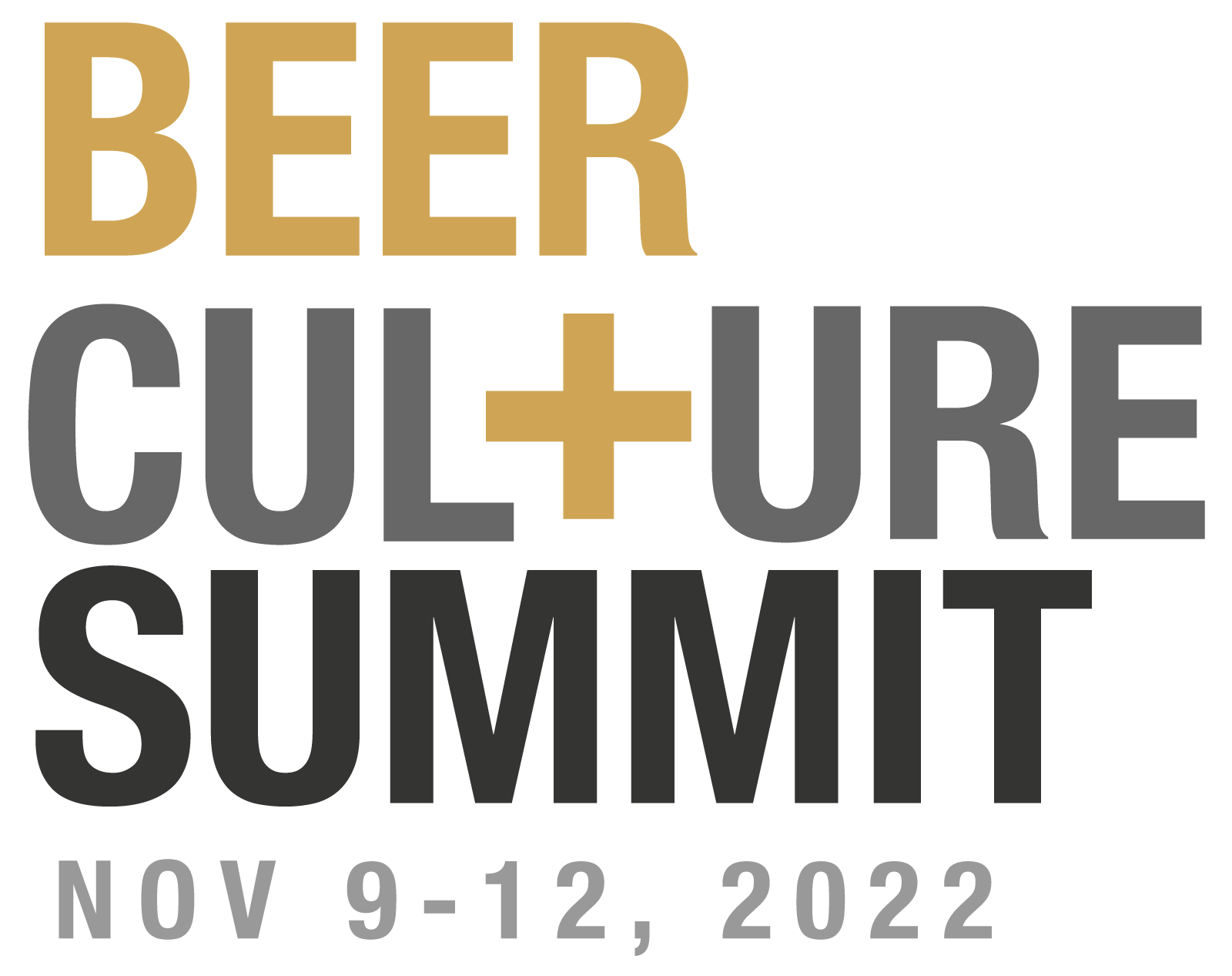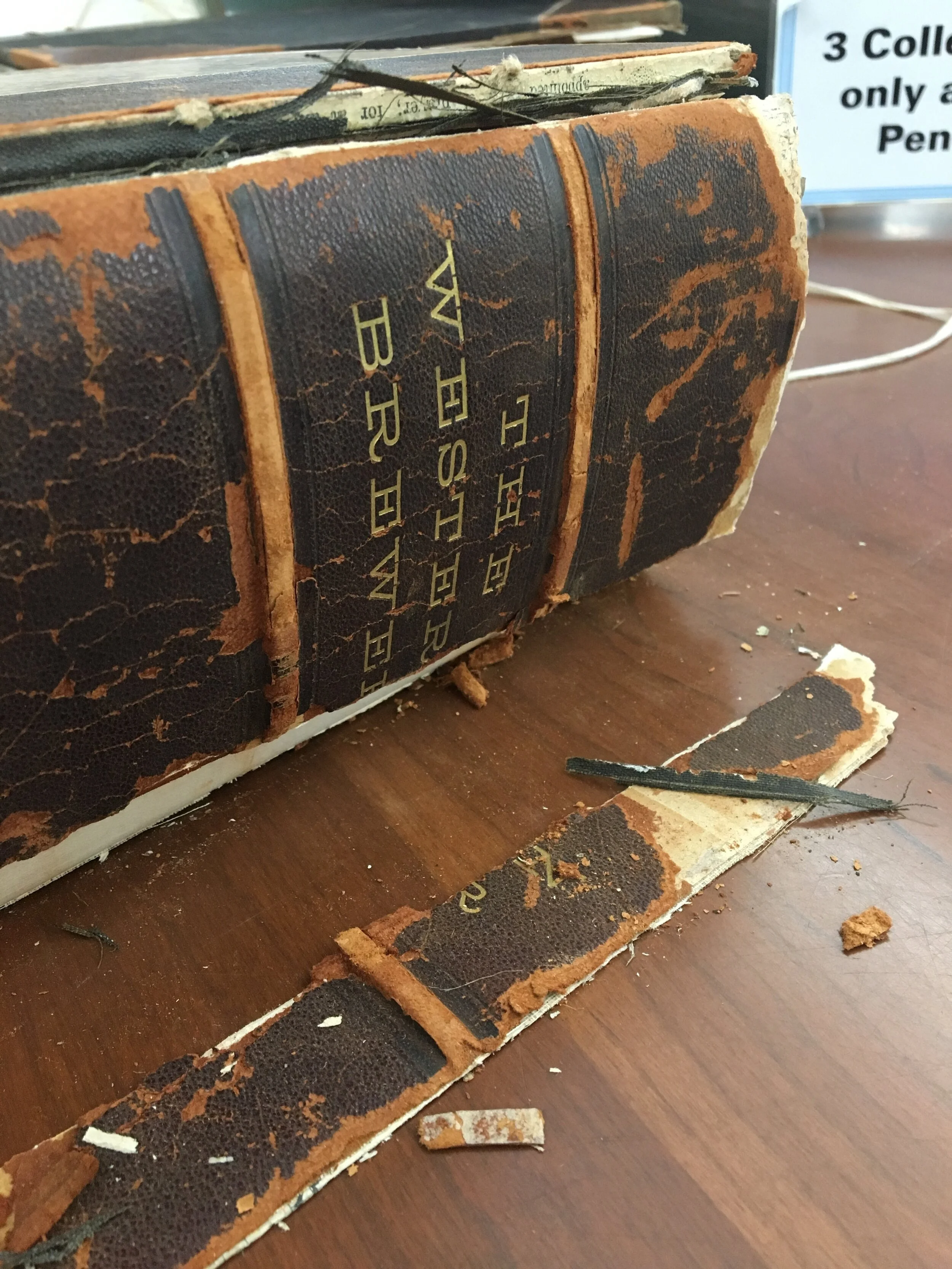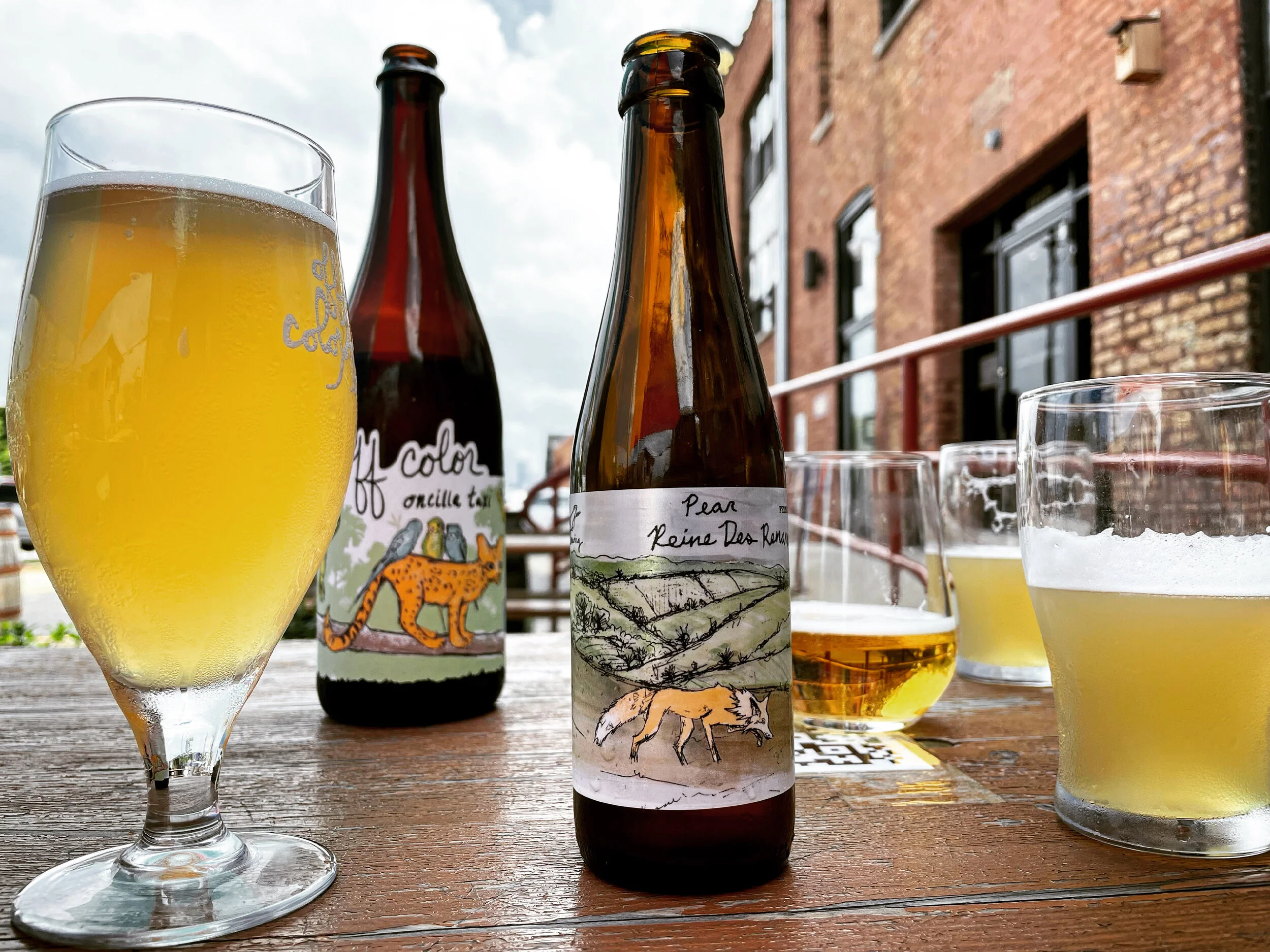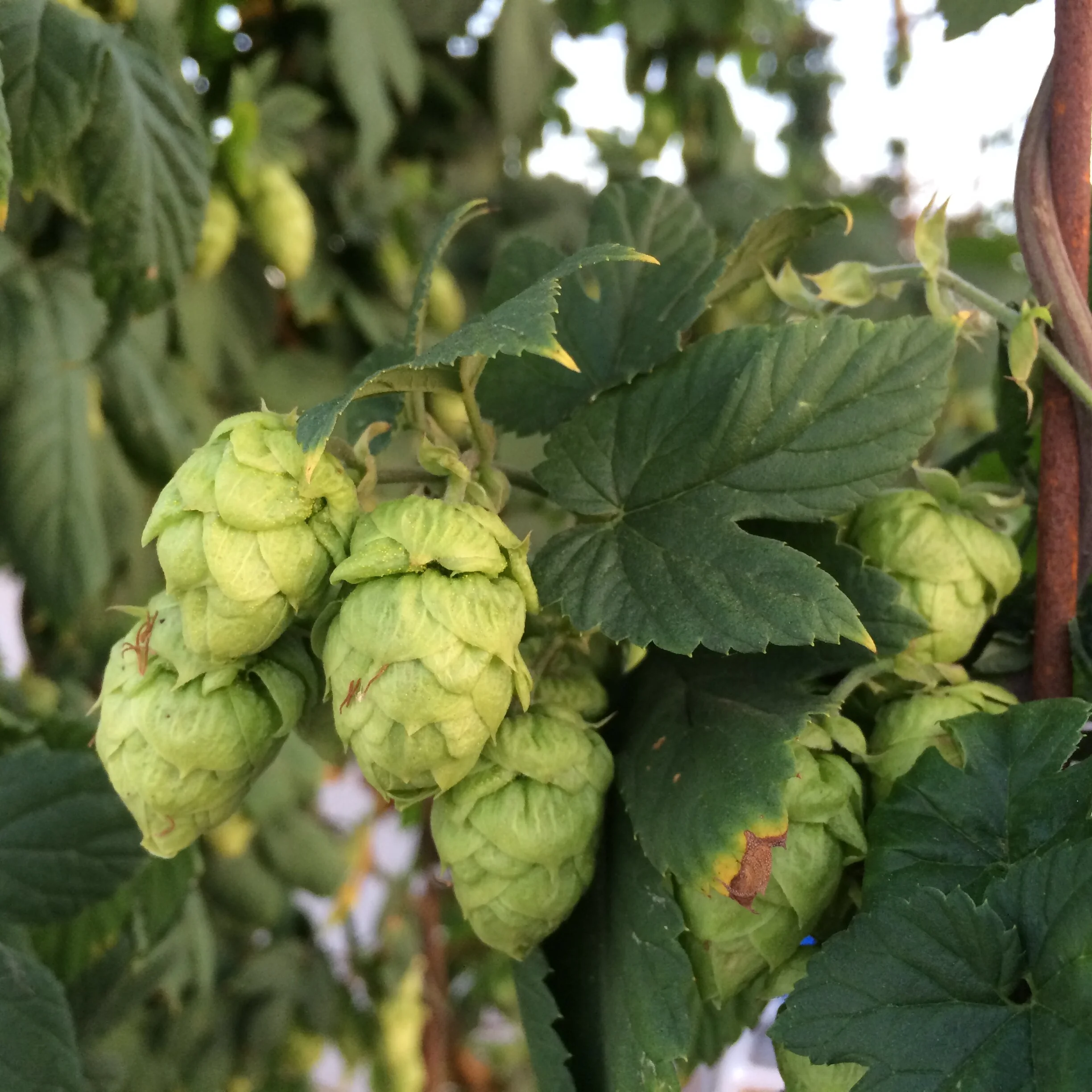
BEER CULTURE SUMMIT CONTENT ARCHIVE
At the helm of many city-wide breweries and taverns were women who were responsible for serving patrons, handling the books, and managing overall operations. The contribution of women to beer culture in late 19th century Chicago was essential to both the growth of the city and the beer industry.
Forgotten Half, a collaboration between the Chicago Brewseum and Goose Island Beer Company, aims to honor and celebrate these women. Staying true to history, this brew is crafted from period American pale ale recipes and is made with six row malted barley, Cluster hops (one of the earliest hop varieties in the country), and a strain of ale yeast from a historic brewery.
Northwestern University Professor, Bill Savage and Liz Garibay, Chicago Brewseum Executive Director close out this year's Summit with a conversation about the important role that women played in 19th century beer and tavern industry. Goose Island brewers discuss the beer and the collaboration. And, of course, there’s beer!
Panelists: Bill Savage (Northwestern University), Liz Garibay (Chicago Brewseum)
The beer industry has long been wading in the waters of diversity and inclusion, which has given rise to a countless number of resource groups for those of marginalized identities. While some have found community in the company of those who share their marginalization, few spaces have been curated with intersectionality in mind. This panel of Black, queer beer professionals will discuss the reconciliation of their identities, barriers they face, navigating the beer scene, and how to create more intersectionality-focused spaces.
Panelists: April Boyce (BlaQ & Soul), Toni Boyce (BlaQ & Soul), Robyn G. W. (Kicks and Kegs), Ren Navarro (Beer. Diversity), Patrice M. Palmer (Royal Society for the Encouragement of Arts)
While conversations and efforts to create a culture of equity, inclusion, and anti-racism support powerful core values, it is crucial to recognize a world of nuances and unique experiences among our many marginalized and minoritized identities. The representation of Indigenous Americans in consumer media has a disturbing and misunderstood history, such as the false stereotypes of alcoholism and addiction perpetuated through a culture of colonialism and systemic racism.
This session brings together four women to discuss stories and solutions that celebrate collaboration and cultural empowerment among indigenous peoples within the hospitality and alcoholic beverage industries.
Panelists: Charlotte Big Canoe (The Full Plate), Chockie Tom (Doom Tiki), Shyla Sheppard (Mandan, Hidatsa & Arikara Nation)
Moderator: Dr. Rose Miron (D’Arcy McNickle Center for American Indian and Indigenous Studies at Newberry Library)
“Feminism is an attitude, a lens through which to view the world, a collective political movement, and a way of life that is grounded in the belief that everyone is entitled to social, economic and political equity” --- Joanne Bagshaw, The Feminist Handbook
Feminism isn’t just about women being equal to men, it’s about dismantling oppressive systems that make it difficult for certain marginalized groups to gain access to resources, like jobs, physical safety, financing for a business or education. Discrimination and marginalization occur when the demographics of an industry are skewed in a way that one group is dominant. This has historically been the case in the craft beer industry.
According to the 2018 benchmarking study from the Brewers Association: 77% of brewery owners are male; 92% of production staff is male; only 8% of production managers are female; female only brewery ownership makes up only 2% of the craft beer industry.
So then the question becomes, how can we apply the tenets of feminism to become a more inclusive industry? Whether it's adopting new beer styles and innovation, dismantling the dominant patriarchal system so common to our industry, casting a wider net in our hiring practices, or fostering safer and more respectful workspaces and allowing all communities within the beer space to flourish - we should all be beer feminists.
Panelists: Julie Rhodes (Not Your Hobby Marketing Solutions)
The majority of the stories that beer history has traditionally shared are those of white men making, creating, and doing all of the things in and for the beer industry. It is a male-centric niche of history. And while beer history studies is a newer field recognized in the academic landscape, it’s no surprise that it too is a male dominated area of study.
Archaeologist and historian Dr. Christina Wade, archivist Tiah Edmunson-Morton, and organizer, attorney, author and documentarian Atinuke “Tinu” Akintola Diver discuss the unique experiences (both successes and roadblocks) they have seen throughout their careers researching, collecting and documenting beer and brewing history in a man’s world. This session is moderated and hosted by co-founder of the Albany Ale Project, Craig Gravina.
Panelists: Dr. Christina Wade (Ladies Craft Beer Society of Ireland), Tiah Edmunson-Morton (Oregon State University)
Moderator: Craig Gravina (Albany Ale Project)
“Beer is more than just a beverage. It is a dynamic cultural force with the power to bring people together and the ability to influence change.”
This passage from the Chicago Brewseum’s mission statement could not be more perfectly embodied in a brewery than by the two in this conversation. TRU Colors Brewery in Wilmington, North Carolina, strives to end the cycle of gang violence in America’s neighborhoods by breaking down barriers and creating new opportunities for active gang members through education, community, and economic security. And yet, after our biased, inequitable, and racist social systems fail us, formerly incarcerated individuals encounter a multitude of barriers to reentering society, including access to education, training, and employment. Tap Social Movement is a brewery in Oxford, England seeking to stop the cycle of imprisonment by creating employment and training opportunities for ex-offenders.
This session brings together the founders of these breweries for a conversation around their missions and impact — and what other breweries can do — to work towards a fairer, more inclusive, justice system, help end systemic racism, and combat the culture of gang violence.
Panelists: Paul Humpherson (Tap Social Movement, Oxford, England, UK), George Taylor (TRU Colors), Cory “Blanc” Wrisborne (TRU Colors)
Moderator: Lucas Livingston (Chicago Brewseum)
Celebrated beer author Horst Dornbusch moderates this roundtable conversation about the state of hops in Germany. While Germany is only one-tenth the area of the United States, the two nations are neck-and-neck as the world's largest hop producers (producing a combined 80% of the global hop harvest).
Horst is joined by Anton Lutz and Regina Obster scientists from German Hop Research Center, to discuss the four classic German hop landraces (Hallertauer Mittelfrüh, Spalter, Hersbrucker, and Tettnager), which have been in their terroirs for centuries, if not millennia. These German hop landraces are now severely threatened by global climate change, invasive pests, and diseases and may entirely disappear.
To preserve Germany’s substantial (and irreplaceable) contribution to the historically grown global hop supply, the German Hop Research Center is trying to breed successor varieties that are resistant to these diseases, pests, and climate change. It’s a race against time. The recently released hardy hybrids Diamant and Aurum and the forthcoming Tango are such new varieties. These are natural hop plants (non-GMO) that carry the genes and sensory profiles of the classics.
Panelists: Anton Lutz (German Hop Research Center), Regina Obster (German Hop Research Center)
Moderator: Horst Dornbusch (Cerevisia Communications)
Tasting some of Off Color Brewing’s fancier foedre and puncheon aged wild ales direct from the barrels, John Laffler guides you along with a discussion of blending principals including the opportunity to give it a go yourself.
Guide: John Laffler
Porter, the favorite drink of the working classes in London, England in the 18th century, had arrived in America by the 1740s and was being brewed on American shores by 1766. The break with Britain did not mean a break with porter, and the thick, black, bitter beer continued to be hugely popular with American drinkers, while New York and Philadelphia became important centers of porter brewing. Even when lager began to take off in the 1840s, porter maintained a respectable slice of the market, and it survived National Prohibition, with dozens of different porters being brewed again from 1933 onwards. Numbers gradually fell, however, until by the early 1970s there were only two American porters left. And then a small brewery in San Francisco decided to revive the style.
Panelists: Martyn Cornell (Brewery History, UK)
Recent social justice movements—like the one sparked by George Floyd’s murder, #MeToo, and the reckoning against sexism initiated by Brienne Allan—have irrevocably altered the role and expectations of media in the United States.
Beth Demmon moderates this discussion with Kate Bernot, Ale Sharpton, and Esther Tseng. The group will examine the role of media in covering sensitive topics and ongoing narratives within the craft beer industry. They’ll unpack the media's responsibilities, legal limitations, different ways to approach sources who may have been the victims of trauma, how to approach organizations who have been the center of controversies while balancing objectivity and opinion, and the delicate dance journalists must balance when reporting from within the communities they are a part of.
Panelists: Kate Bernot (journalist), Ale Sharpton (blogger), Esther Tse (writer)
Moderator: Beth Demmon (writer)
In Norway the farmers brewed their own beer from the Stone Age up to around 1900, in some cases into the present. Traditional beer was a key part of Norwegian peasant life, and a necessary part of every social and religious ritual of any importance, literally from birth to grave.
Lars Marius Garshol discusses how central beer was to Norwegian peasant culture by showing how it was used for Christmas, births, weddings, funerals, and so on. It will also show how beer was literally regarded as holy, being used in ritual offerings, for baptizing children, and so on. Most of these customs are forgotten today, but they are richly documented in historical documents and Norwegian ethnographic literature and offer a glimpse into a world very different from our own. And yet in many ways recognizable.
Panelists: Lars Marius Garshol (Author, Norway)
There are more than 5.4 million people of South Asian heritage in the United State, yet as brewers, brewery owners, and beer drinkers go, South Asians make up a tiny fraction of the 22.2 billion dollar craft beer market.
This panel - which is moderated by Ruvani de Silva and includes Sarah Nadeem, Ajay Nagarajan, Bhavik Modi, Ravi Patel, and Aadam Soorma - will consider the cultural and historic barriers that have kept South Asians from drinking craft beer and the specific challenges that face South Asians trying to enter the beer world, both as drinkers and as industry professionals. The conversation will also cover exciting potential that people of South Asian heritage can bring to craft beer and ways that breweries can make their spaces more welcoming to South Asian staff and patrons. This will probably be the first ever beer event panel made up entirely of South Asians in the beer industry and will offer unique insights into the South Asian experience of brewing and drinking craft beer.
Panelists: Sarah Nadeem (Writer), Ajay Nagarajan (Windmills Brewery), Bhavik Modi (Azadi Brewing), Ravi Patel (Other Desi Beer), Aadam Soorma (Trace Brewing)
Moderator: Ruvani de Silva (Writer)
Unfortunately, Anthony Salazar who was hosting the Ballard Brewery District talk originally scheduled for this time slot had to cancel due to medical reasons. Replacing it is Randy Mosher’s popular talk from the 2020 Beer Culture Summit.
Beer history is not always what we think, especially regarding Belgium, whose true story has not often been told. Trappist beers are not ancient. Spices were copied from the English. Almost all beers contained wheat in the past. Farmhouse beer may not have existed as we imagine it. Author Randy Mosher uses old written and visual sources related to Belgian beers and brewing to lead an exploration of this great brewing tradition, revealing strange tastes, exotic brewing methods and long-forgotten beer styles.
Panelists: Randy Mosher
Throughout history, various beer styles have developed due to taxation. Focusing on the main brewing regions - the United States, Belgium, Germany, and England – Jen Blair and Rachel Hudson discuss how each country’s taxation practices affected the development of some of the regions’ most well-known beer styles. From brewing rights to brewing ingredients to brewing equipment, beer styles have been affected through taxation.
Panelists: Jen Blair (Orpheus Brewing), Rachel Hudson (Pilot Brewing)
Hop growing started in New Zealand when colonization began in earnest. Tim Holt, Editor of the Brewery Journal, will attempt to explain the origins of hop farming and its evolution up to World War One. It will also outline the challenges early settlers encountered when establishing hop farms. Finally, the competition between 'native' hops and those from 'home' will be assessed.
Panelists: Tim Holt (Editor of the Brewery Journal, UK)
In the late 19th century, the American brewing industry was thriving, and in Chicago, brewing science was advancing. John Ewald Siebel founded his Zymotechnic Institute in 1868 where he helped pioneer brewing research and education. In 1872, newly named Siebel Institute of Technology was officially born, which continues to educate brewers to this very day.
Join us for a special evening that celebrates the oldest brewing school in the country, the oldest brewing school in the Americas, and the second oldest brewing school in the world.
Usually only open to enrolled students, this evening will provide the rare chance to roam the institute and engage in sensory beer education, explore the teaching brewery, and watch vintage beer commercials. Who doesn’t like those?
At 8pm, John Hannafan, Vice President and Director of Education at Siebel, leads a fun and informal conversation with special guests to discuss Siebel’s past, present, and future in the brewing landscape.
Guide: John Hannafan (Siebel Institute)
Special Guests: Mike Babb (Siebel Institute), Keith Lemcke (Siebel Institute), Florian Kuplent (Urban Chestnut Brewery), Andreas Miller (Great Central Brewing), Randy Mosher
Back by popular demand!
April and Toni Boyce of BlaQ & Soul have come to be known for their entertaining and educational cooking demos that offer colorful banter and lively interaction. This year, the dynamic duo is back for more.
Tonight, the welcome you for a shrimp Creole and beer dinner. Shrimp Creole is a south Louisiana dish made of tomato based shrimp served on top of long grain white rice. Looks really fancy and hard to make but it’s as simple as it can get!
As April prepares dinner, Toni guides you through some tasty beer pairings.
Panelists: April and Toni Boyce
What did the builders of Stonehenge eat and drink? How do we know? Why is this rudimentary aspect of daily life elusive in the archaeological record? Travis Rupp examines the evidence of beer production in Neolithic and Bronze Age Britain. Particular attention will be given to the Beaker People and the collective beer culture that flourished in Western Europe from 2800-1800 BCE. Rupp discusses how beer was produced, what it might have tasted like, and why evidence for beer production can be difficult to find in the archaeological record. In the end, Rupp will demonstrate how local brew was a dietary staple from Neolithic to Roman occupied Britain spanning thousands of years.
Panelists: Travis Rupp
Beer history is full of things lost and recovered and, in this conversation, you will hear stories of Jewish brewery ownership, labor, and loss. Widening the historical lens, Michael and Peter Stein will guide you through stories and research of Jews brewing and owning breweries in the lands of Slovakia, Galicia, Poland, Ukraine, Russia, and the United States.
The substantial participation of Jews in the beer industries of Eastern and Western Europe was completely stopped by the militarized attacks of Nazi Germany, the arrests, and deportations to concentration camps of most of the Jews of Europe. Of the 9 million Jewish men, women, and children in Europe before WWII, 6 million were killed during the Holocaust. In other words, two thirds of all Jews perished because of Nazi policies and actions. Using Raul Hillberg's typology to explore Holocaust groups, Perpetrators, Victims, Bystanders, Resisters, and Rescuers/Liberators, this presentation will discuss the role of Jews in breweries and the brewing trades before, during, and after the Holocaust.
Panelists: Michael Stein (Lost Lagers), Peter Stein (United States Holocaust Memorial Museum)
Despite its reviled reputation, Prohibition ushered women to political influence and granted them the freedom to express themselves in fresh ways. Female activists took to capitals across America to protest the 18th Amendment, and young women gained newfound cultural independence (while their traditionally minded moms often looked on in horror). These rights may seem commonplace but we owe their inception to the brave and stylish women of the 1920s.
Best-selling author Tara Nurin will read from her just-released book, and lead an audience discussion on the gender revolution catalyzed by Prohibition.
Panelists: Tara Nurin
One of beer’s greatest strengths is its ability to bring people together. And mead … and braggot … and gruit. Within the world of Medieval and Renaissance historical reenactment lives a thriving subculture of historic alesters, vintners, meadsters, and fermenters. This session unites individuals of diverse backgrounds, interests, perspectives, and motivations around the shared theme of brewing in the contemporary, performative cultural phenomenon of Medieval and Renaissance historical reenactment. The conversation will concentrate on researching and reconstructing historic recipes, the concept of authenticity, reenacting historic techniques and procedures, judging and competition, the emphasis on documentation, and the uniqueness of brewing camaraderie within historical reenactment communities.
Panelists: Alec Story, Michael Suggs (aka Master Mikhail Novgorodets), Marco Vachon (aka Master Ludwig Von Eisburg), Susan Verberg (aka Mistress Elska Á Fjárfelli)
Moderator: Lucas Livingston (Chicago Brewseum)
Beyond the walls of the Smithsonian's museums in Washington, DC, grow collections of a different kind: trees, vegetables, fruits, flowers, and herbs cultivated by Smithsonian Gardens horticulturalists. Also: Cascade, Nugget, Willamette, and Mt. Hood hops. Since 2018, the National Museum of American History and Smithsonian Gardens have united for a unique garden-to-glass collaboration rooted in the hops that grow in the Victory Garden outside the American History Museum. Employees and public volunteers have come together to harvest the hops, distribute them among DC-area brewers, and enjoy the beers brewed with those hops.
Eric Calhoun, supervisory horticulturalist at Smithsonian Gardens, and Theresa McCulla, curator of the American Brewing History Initiative at the American History Museum, will talk about the multiple opportunities for collaboration, public programming, and community-building enabled by the cultivation of hops on Smithsonian grounds.
Panelists: Eric Calhoun (Smithsonian Gardens), Theresa McCulla (National Museum of American History)
Have You Ever Experienced Sexism in the Beer Industry?
Earlier this year, Brienne Allan (@ratmagnet) asked a simple question. Have you ever experienced sexism in the beer industry? It quickly became the Instagram inquiry that sent shockwaves throughout craft beer, subsequently inspiring a BEVOLUTION. And following that, Brave Noise, a beer collab and initiative advocating for a safe and discrimination-free beer industry was launched across the country.
Brienne Allan, Jen Blair, Ash Eliot, and Ren Navarro virtually join us at Pilot Project Brewing for a conversation about the origins of her question, the progress made in the industry thus far, and the changes we need to see happen. Moderated by Jessica Infante.
Panelists: Brienne Allan (Brewer and Production Manager), Jen Blair (Advanced Cicerone and National BJCP Beer Judge), Ash Eliot (communications and marketing professional), Ren Navarro (Owner/Operator of Beer. Diversity)
Moderator: Jessica Infante (reporter at Brewbound)

The Beer Culture Summit is our annual four day conference that embraces one very important aspect of our mission: that beer is more than a just a beverage. We acknowledge that it is a dynamic cultural force with the power to bring people together and the ability to influence change. Around the globe, an ever-growing community of researchers, professionals, and everyday beer enthusiasts strives to learn more about beer’s historic legacies and modern worth. The Summit aims to be the forum to bring them all to the table for a pint and a discussion.
See you next Fall for our 4th Annual Beer Culture Summit.
























